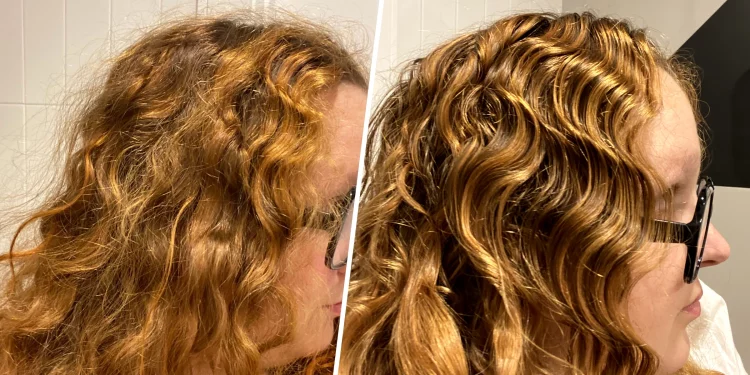In recent years, the beauty and wellness industry has been flooded with an increasing demand for natural hair products. From shampoos and conditioners to styling gels and oils, the market is brimming with options boasting “all-natural” ingredients, free from harsh chemicals. But with all the buzz surrounding these products, one key question persists: are natural hair products really better for your hair? Let’s dive into this topic, exploring the pros, cons, and science behind natural haircare.
The Appeal of Natural Hair Products
Before delving into the nitty-gritty, let’s understand why so many people are making the switch to natural hair products. The answer lies in increasing awareness about the harmful effects of synthetic chemicals and additives commonly found in traditional hair products. Many consumers are now looking for cleaner, greener alternatives—products that not only nourish hair but also align with a sustainable lifestyle.
Natural hair products are typically free from parabens, sulfates, silicones, artificial colors, and fragrances. These ingredients, though effective at achieving short-term results, have raised concerns regarding long-term hair health. Natural alternatives, on the other hand, promise gentler, more nourishing formulas using plant-based oils, herbs, and other organic compounds.
But is this promise too good to be true?
What Makes Hair Care Products “Natural”?
To begin with, it’s important to understand what qualifies as “natural.” A natural hair product is typically derived from plants, minerals, or other non-synthetic sources. This can include oils (like coconut or argan), plant extracts (like aloe vera or chamomile), and natural butters (like shea butter). The key distinction is that these products avoid artificial additives, preservatives, and synthetic chemicals, which can irritate the scalp or cause long-term damage to the hair and skin.

Types of Ingredients Commonly Found in Natural Hair Products:
- Plant Oils: Argan oil, jojoba oil, coconut oil, and olive oil are popular for their nourishing and moisturizing properties.
- Herbal Extracts: Aloe vera, peppermint, and chamomile are known for their soothing and calming effects on the scalp.
- Botanical Butters: Shea butter, cocoa butter, and mango butter offer deep hydration and help seal in moisture.
- Vitamins and Antioxidants: Vitamin E, biotin, and keratin can support hair health, boost growth, and improve elasticity.
These ingredients promise to help moisturize, strengthen, and protect hair naturally. So, why is there still skepticism around natural hair products?
The Benefits of Natural Hair Products
- Gentler on the Scalp
Natural hair products are typically free from harsh chemicals, which can strip the scalp of its natural oils, causing dryness and irritation. Products like sulfates, which are commonly found in conventional shampoos, can create a lather but also tend to strip moisture from the hair, leaving it brittle and prone to breakage. By avoiding these ingredients, natural hair care tends to maintain the scalp’s natural balance, keeping it moisturized and healthy. - Improved Hair Texture and Moisture Retention
Plant-based oils and butters are known for their ability to penetrate the hair shaft, improving texture and enhancing moisture retention. For individuals with dry, coarse, or curly hair, this is particularly beneficial. Coconut oil, for example, has lauric acid, which helps to reduce protein loss from hair and offers deep hydration. This results in smoother, softer hair that’s less prone to frizz. - Fewer Harsh Chemicals
As we become more aware of the potential risks of chemicals like parabens, phthalates, and formaldehyde, many consumers are turning to natural hair products as a safer alternative. These chemicals can potentially irritate the skin, disrupt hormonal balance, or cause allergic reactions. By opting for products that contain naturally-derived ingredients, users can minimize their exposure to these concerns. - Environmentally Friendly
Another key benefit of natural hair products is that many are more eco-conscious. Natural ingredients are often sustainably sourced, biodegradable, and free from animal testing. Brands that use organic ingredients and recyclable packaging help reduce the overall environmental footprint of the beauty industry. - Customizable for Different Hair Types
Natural hair care products cater to a wide range of hair types—from fine and straight to curly, coily, or wavy hair. With the flexibility to combine oils, butters, and other plant extracts, natural products offer versatility that allows users to tailor their hair care routines to their unique needs.
The Drawbacks of Natural Hair Products
While the benefits are appealing, it’s important to approach natural hair products with realistic expectations. Here are some potential downsides:
- Effectiveness Varies by Individual
Natural ingredients work wonders for some, but they may not produce the same results for everyone. For example, someone with fine hair may find that heavy oils like castor oil weigh down their hair, while someone with thick, dry hair may need more moisturizing properties to see results. It’s all about trial and error, as there’s no universal solution. - Shorter Shelf Life
Many natural products are free from synthetic preservatives, which can lead to a shorter shelf life. This means that natural hair products may go bad more quickly, especially if they’re not stored properly or if the formula contains water-based ingredients. Consumers should be mindful of expiration dates to avoid using expired products. - Potential for Allergies or Sensitivities
Although natural ingredients are generally gentler, they can still cause allergic reactions in sensitive individuals. For example, essential oils such as lavender or peppermint may trigger scalp irritation or itching for some people. It’s essential to test products on a small patch of skin before applying them to your hair. - Cost
Natural hair products tend to be more expensive than their conventional counterparts. The sourcing, production, and certification of organic or fair-trade ingredients can drive up costs. If you’re on a tight budget, this might be a limiting factor, although the investment can pay off in terms of healthier hair in the long run. - Performance Variability
While some natural products perform exceptionally well, others may not deliver the same level of performance as their chemical-laden counterparts. For instance, natural shampoos might not lather as much, or oils may not give the same shine as silicone-based serums. If you’re used to highly polished or glossy results, it may take time to adjust to more natural-looking hair.
Can You Go 100% Natural?
While it’s possible to create a hair care routine that’s entirely based on natural products, it’s important to be aware of the nuances. Not all natural products are equal, and what works for one person might not work for another. For those with specific hair concerns, like dandruff, excessive dryness, or scalp issues, combining natural treatments with targeted, science-backed products may be the best solution.

Hair care is highly individual, and the key to a healthy scalp and hair lies in understanding your unique needs. Many people find that integrating natural products into their routine (without fully abandoning other treatments) leads to the best results. For example, you might use a natural oil like argan oil for moisture while still using a sulfate-free shampoo to cleanse effectively.
Natural Hair Products vs. Conventional Products: A Comparison
| Feature | Natural Hair Products | Conventional Hair Products |
|---|---|---|
| Ingredients | Plant-based, organic, fewer synthetic chemicals | Synthetic chemicals, preservatives, artificial additives |
| Scalp Sensitivity | Less irritating, gentler on the scalp | May cause dryness or irritation |
| Hair Health | Promotes nourishment and hydration | Can cause buildup or long-term damage |
| Environmental Impact | Sustainable, eco-friendly | Often not biodegradable, not cruelty-free |
| Cost | Higher, especially for organic brands | More affordable and widely available |
| Performance | Often gentler, less immediate “shine” or styling results | High-performance, often delivers quick results |
| Shelf Life | Shorter, may require quicker use | Longer shelf life due to preservatives |
Conclusion: Are Natural Hair Products Really Better?
Ultimately, the decision to use natural hair products boils down to personal preference and hair needs. For many, natural products offer a gentler, more sustainable approach to hair care, free from the harmful effects of synthetic chemicals. While they may not deliver instant results or shine like some commercial products, they offer long-term benefits in terms of hair health, texture, and overall vitality.
However, it’s essential to manage expectations. Natural haircare doesn’t offer a one-size-fits-all solution. It’s important to experiment, observe how your hair responds, and tailor your routine to suit your needs. Whether you choose to go 100% natural or simply incorporate a few plant-based products into your regimen, the key is balance and consistency.
If you’re interested in trying out natural hair products, start by researching brands that offer high-quality, cruelty-free, and certified organic ingredients. With a little trial and error, you might just find the natural solution that works wonders for your hair.












































